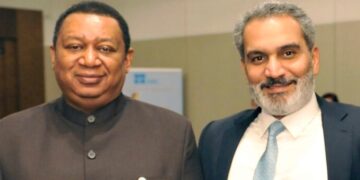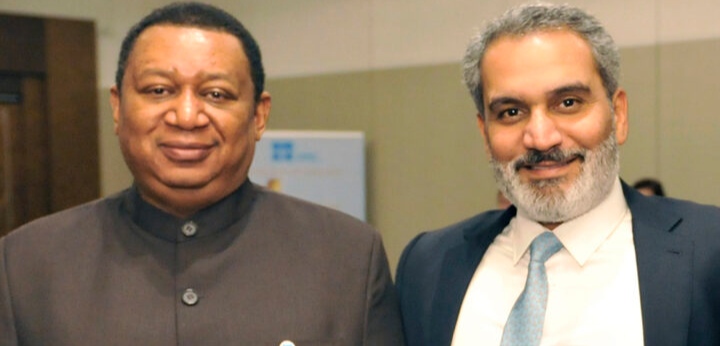By John Ikani
The Organisation of the Petroleum Exporting Countries (OPEC) has appointed Mr Haiham Al-Ghais of Kuwait as the next Secretary-General of the organisation.
OPEC made the appointment at a Special Meeting on Monday held via video conference, which was chaired by President Jean-Richard Itoua, Congo’s Minister of Hydrocarbons and Head of its Delegation.
Al-Ghais, of the Kuwait Petroleum Corporation (KPC) will succeed Mohammed Barkindo, a former Group Managing Director, Nigerian National Petroleum Corporation (NNPC) when his second term as OPEC Secretary-General ends July 2022.
OPEC said his appointment was in accordance with Article 28 of the OPEC Statute and in application of the procedure decided at the 182nd Meeting of the Conference on December 1, 2021.
The tenure of the incumbent Deputy Managing Director for International Marketing at KPC is for a period of three years.
About Haiham Al-Ghais?
Al-Ghais, a veteran of the Kuwait Petroleum Corporation (KPC) and Kuwait’s OPEC Governor from 2017 to June 2021, currently serves as Deputy Managing Director for International Marketing at KPC.
He Chaired the Joint Technical Committee (JTC) of the Declaration of Cooperation (DoC) in 2017 and subsequently served as a Member of the JTC until June 2021.
In its decision, the Conference expressed appreciation to HE Mohammad Sanusi Barkindo for his leadership during his two-term tenure as Secretary General beginning on August 1, 2016 and ending on 31 July 2022.
A long-serving veteran of Nigeria’s oil industry and OPEC, Mr Barkindo has been instrumental in expanding OPEC’s historical efforts to support sustainable oil market stability through enhanced dialogue and cooperation with many energy stakeholders, including the landmark DoC since its inception in December 2016.
These efforts are widely credited with helping to stabilise the global oil market since the unprecedented market downturn related to the COVID-19 pandemic, and providing a platform for recovery.
Before being appointed Secretary-General, Mr Barkindo held a number of key roles at OPEC between 1986 and 2010, including as Acting Secretary General in 2006.
He is known internationally for helping to produce the United Nations Framework Convention on Climate Change (UNFCCC) and the Kyoto protocol as the leader of Nigeria’s technical delegation to the UN negotiations in 1991.
He has remained a key contributor to the UNFCCC process, including most recently at the 26th Conference of Parties (COP) meeting in Glasgow in October and November 2021.
In his letter to Al-Ghais, Nigeria’s Mohammad Barkindo, who will be handing over to him, said: “It is fully deserved and recognition of your extremely positive standing within the OPEC community as a committed, knowledgeable and extremely able technocrat who can lead the Organization in the years to come.
“It has been the honour of a lifetime to lead OPEC since August 2016, helping bring together the ‘Declaration of Cooperation’, the ‘Charter of Cooperation’, and navigate the Organization past the impacts of the industry downturn of 2014-2016 and the massive repercussions of the Covid-19 pandemic in 2020 and 2021.
“With your appointment, this vital International Organization for our Member Countries, as well as the global oil market, is in very capable hands.
“From my time working collaboratively with you as Kuwait’s OPEC Governor, I know you have a great understanding of the organs and internal workings of the Organization.
“This will stand you in good stead and will be a great knowledge platform for when you assume the Secretary General’s responsibilities.
“However, I personally recall the challenges of those first few months and the benefits of advice and guidance I accrued from previous Secretaries General, as well as past and active Ministers, and with this in mind, I stand ready to be of any help to you as and when necessary.”
About OPEC
The mission of OPEC is to coordinate and unify the petroleum policies of its Member Countries and ensure the stabilization of oil markets in order to secure an efficient, economic and regular supply of petroleum to consumers, a steady income to producers and a fair return on capital for those investing in the petroleum industry.



































